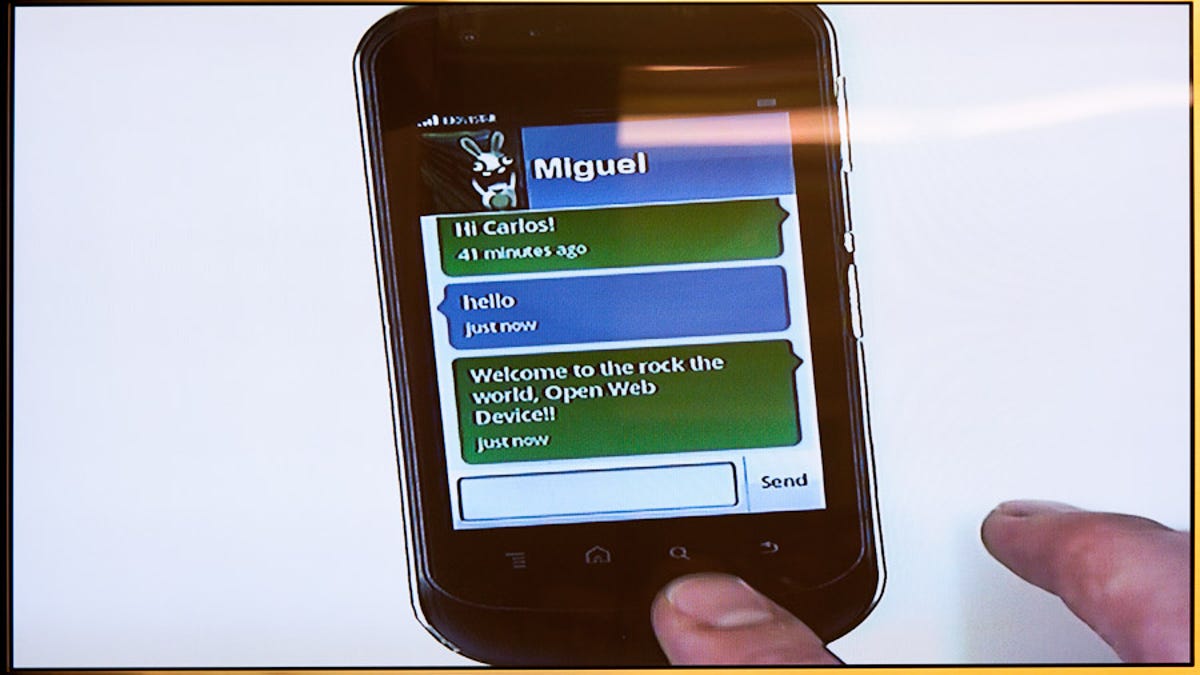Is Mozilla's mobile OS good for games? See for yourself
Telefonica shows prototype phone using B2G, Mozilla's browser-based OS. It can't match today's higher-end smartphones, but it'll be good enough to sell by year's end, allies say.

BARCELONA, Spain--Telefonica today showed off B2G, the Mozilla browser-based operating system for mobile phones, saying it's good enough to sell to today's feature-phone customers later this year.
You may or may not agree. To help you judge, here's a video of Carlos Domingo, Telefonica Digital's director of product development and innovation, demonstrating a prototype phone at a press conference today at the Mobile World Congress show here. At the event, Telefonica announced its mobile OS pact with Mozilla.
Having watched the demo myself, the phone looked workable but awfully pokey. And touch input-- specially the keyboard--was evidently a challenge. These are early days for B2G (which stands for Boot to Gecko), but in the meantime iOS and Android show no signs of slowing down, and Windows Phone is gaining adherents.
Top-end performance isn't everything, though. Telefonica's BTG-based phone will cost a tenth what an iPhone costs, Domingo said in an interview.
Mozilla argues that because the Web engine runs directly on Linux, without the intermediate software layers used in iOS and Android, it can use lower-end hardware. The demonstration used a Qualcomm-built reference design with a 480x320 pixel screen. Domingo used it put a call through to another phone, sent and received text messages, won a score of 317 at the HTML5 test Web site, played two lightweight games, and read a Frankenstein e-book.
Mozilla Chief Technology Officer Brendan Eich doesn't pretend it's up to the challenge of 3D graphics. But he does say the phone is advancing rapidly.
The BTG operating system, which combines Mozilla's Gecko browser engine with a Linux kernel hidden underneath, runs Web apps, not native apps, which means they use Web standards such as JavaScript, HTML, CSS, and WebGL. That's good for many games and sites with Web-based interfaces today, but it'll take some convincing for other programmers. And iOS and Android have a lot of programmers on board already.

